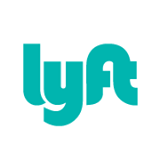They do exist, as Houston’s cab companies recently discovered.
More than a year of intense lobbying by established cab companies and tens of thousands of dollars in campaign donations to City Council members were not enough to hold off a pair of upstart tech-taxi firms that now can operate legally in Houston.
In the end, city regulators made few changes to their original proposal revising Houston’s vehicle-for-hire rules. Of the two dozen amendments proposed by council members before they approved the item earlier this month, neither of the cab industry’s top priorities – capping the number of drivers who can sign up with the new companies and requiring them to carry round-the-clock commercial insurance – passed.
To the extent the proposal did evolve, the changes are unlikely to hamper new entrants, Uber and Lyft, or other firms that use smartphone applications to connect willing drivers with interested riders using the driver’s personal car.
Perhaps, said Councilman Michael Kubosh, a staunch opponent of the new rules, the vote simply reflected that the app firms have an idea whose time has come.
“I let the cab companies know right off when they came to talk to me, and I certainly told the cab drivers, ‘Guys, technology always trumps tradition. This is coming and you guys have to prepare yourselves for it,’ ” he said.
[…]
Tina Paez, director of the city’s Administration and Regulatory Affairs Department that drafted the new rules, credited Yellow Cab with pushing for disabled access. The final ordinance requires at least 3 percent of vehicles for hire to be wheelchair accessible, that no one company can meet that goal, and that a task force will make further recommendations to City Council.
Paez pushed back on the other victories [Yellow Cab lobbyist Cindy] Clifford claimed, however, saying her department’s original draft was based on research, not suggestions from the cab industry or the new app companies.
The city always planned to place the same public safety rules on all companies, Paez said, though she acknowledged taxi lobbying forced the new firms to submit to city background checks and vehicle inspections rather than let third parties conduct them. And, Paez said, the language clarifying the effect of new entrants’ insurance policies changed the wording but not the content of the law.
“There was very, very little that changed from what we originally proposed to council, except for the disabilities part,” Paez said.
I think CM Kubosh summed it up pretty well. There’s clearly a demand for the type of service being offered by Uber and Lyft, and the main argument against them largely boiled down to “we’ve always done it this way”. Yes, there were legitimate concerns raised about insurance, background checks, and access for disabled folks, but there was never any reason those couldn’t be addressed. I’ve said before that I’d like to see the changes reviewed in (say) twelve months’ time because we don’t have any history to guide us with these changes and we don’t know what the long term effects will be, but again that’s no reason not to try to deal with the evolution of the market. I still think that much of the demand for Uber and Lyft will come from people who weren’t cab riders to begin with and that the existing cab business will be affected much less than they fear, but we’ll see. It’s my hope that we’ll look back on this in a year or two and say that the market has grown and that people have benefited from the expansion of their choices.


